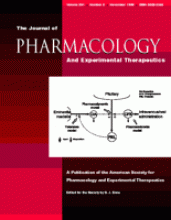Abstract
The purpose of this study was to determine the effects of in vivo estrogen manipulations on mechanisms of endothelium-dependent vasodilation. Ovary-intact, ovariectomized (OVX), or OVX with estrogen replacement (OVX + E2) female Sprague-Dawley rats were studied (n = 8). Mesenteric arteries (∼300 μm) were isolated, cannulated, and pressurized to 60 mm Hg in an arteriograph containing bicarbonate buffer and vessel diameter was monitored. Concentration-response curves to the endothelium-dependent histamine H1 agonist 2-thiazolylethylamine (2-TEA; 1 nM–100 μM) and to acetylcholine (1 nM–10 μM) were performed in preconstricted arteries. The effect ofNω-nitro-l-arginine (LNA; 100 μM) or LNA + indomethacin (INDO) (10 μM) on agonist-induced vasodilation was determined. There was no difference between treatment groups in the sensitivity of mesenteric arteries to 2-TEA or acetylcholine. LNA produced a significant decrease in sensitivity to 2-TEA in arteries from ovary-intact and OVX + E2 rats but not in those from OVX rats. The addition of INDO produced a small additional decrease in sensitivity to 2-TEA in arteries from ovary-intact rats, a significant decrease in OVX, and no shift in OVX + E2. LNA + INDO produced a similar degree of inhibition of the 2-TEA response in the three treatment groups. In contrast, when acetylcholine was used, the decrease in sensitivity produced by LNA or LNA + INDO was similar in the three rat groups. We conclude that estrogen increases the nitric oxide component of endothelium-dependent dilation and decreases the cyclooxygenase component. These effects of estrogen appear to be agonist-specific. Our findings suggest that estrogen modulates cross talk between the nitric oxide synthase and cyclooxygenase pathways of vasodilation.
Footnotes
-
Send reprint requests to: Cathy A. Davison, Ph.D., Department of Pharmacology and Neuroscience, Albany Medical College, 47 New Scotland Ave., Albany, NY 12208. E-mail:Cathy_Davison{at}ccgateway.amc.edu
-
↵1 This work was supported by grants (to C.A.D.) from the National Institutes of Health (HL 45673) and from Albany Medical College.
- Abbreviations:
- NO
- nitric oxide
- OVX
- ovariectomized
- E2
- estrogen
- PSS
- physiological salt solution
- 2-TEA
- 2-thiazolylethylamine
- LNA
- Nω-nitro-l-arginine
- INDO
- indomethacin
- SPERNO
- spermine-nitric oxide complex
- Received March 10, 1999.
- Accepted July 13, 1999.
- The American Society for Pharmacology and Experimental Therapeutics
JPET articles become freely available 12 months after publication, and remain freely available for 5 years.Non-open access articles that fall outside this five year window are available only to institutional subscribers and current ASPET members, or through the article purchase feature at the bottom of the page.
|






